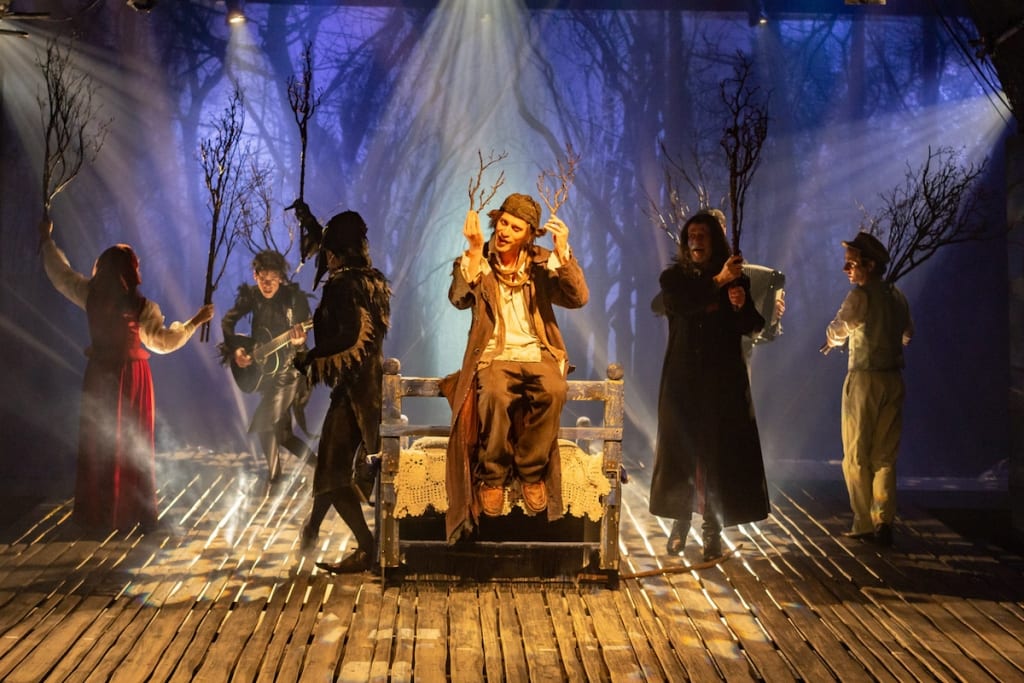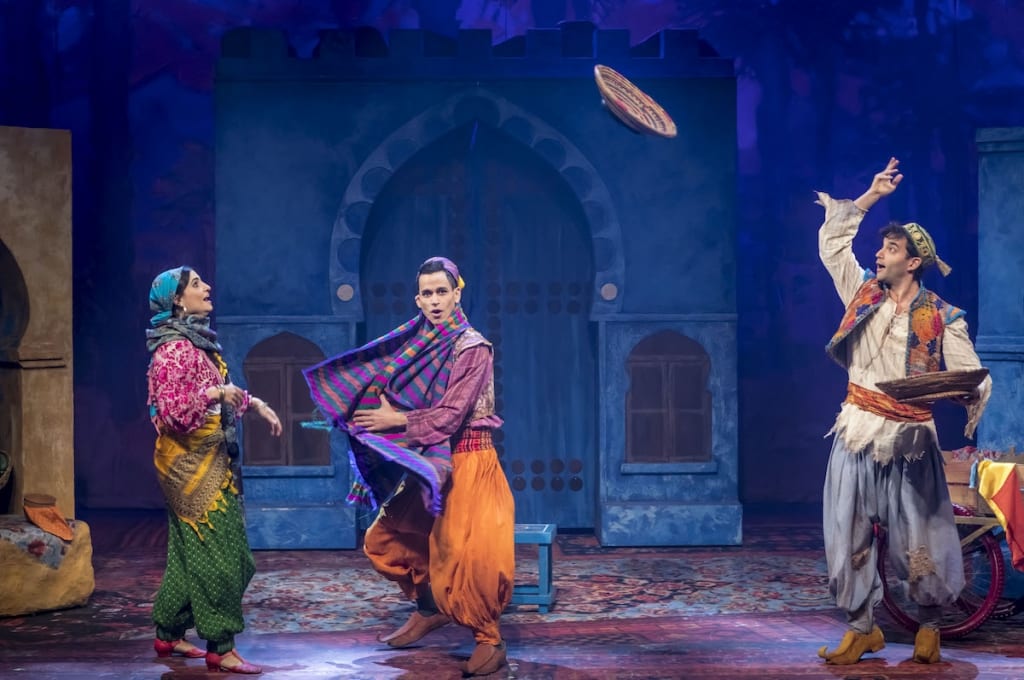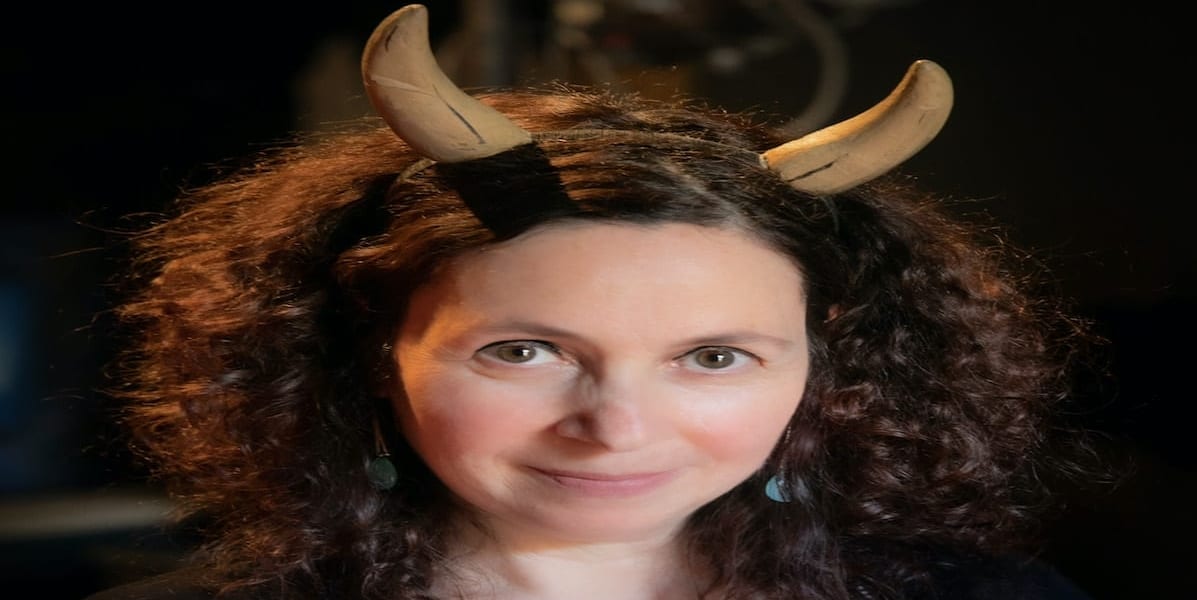Shirily Deshe in conversation with Rivka Jacobson
Shirili (which in Hebrew means ‘sing to me’) Deshe is the daughter of a near-legendary figure on the Israeli performing arts scene for over four decades, but she managed, from an early age, to prove successfully that she does not bask in her father’s shadow but has the talent and vigour of an independent actress, playwright and director for stage and television. Mrs Shirili Deshe is a graduate of the Thelma Yellin School of Arts, majoring in theatre. She also studied and graduated from the Jacque Lecoq School Theatre in Paris. We did not meet but communicated in Hebrew, electronically. The following is my translation of the communication. Currently, the play Teibele and the Demon, directed by Deshe, is one of the post-lockdown performances at the 230 seats Jerusalem Khan Theatre.
The play is based on a short story by Isaac Bashevis Singer (1903-1991), Nobel Laureate for literature (1978), titled ‘Teibele and Her Demon’. The original stage adaptation, performed on Broadway 1979/1980, was by the playwright Eve Freidman.
It is a tale of Teivele (an endearing form of Tova, meaning in Hebrew and Yiddish ‘Good’), a woman in a state of limbo (“aguna”) – deserted by her husband, she is not allowed to marry another, without evidence of his death or divorce. Teivele is superstitious. She is fascinated by tales about demons. That obsession is exploited by a desperate suitor whom she derides.
Fantasy Vs Reality
There are numerous stage adaptations of the story. The current production is that of the playwright, and Deshe’s husband, Roni Sinai. The title of Singer’s story has been modified to ‘Teibele and the Demon’ and not ‘Teivele and Her Demon’. Deshe, explains: ‘Roni distanced himself from the various adaptations of the story. He fused the numerous demons that appear in many of Bashevis‘s different stories and put them into the show. The devil is the narrator, and the demons, who were such a significant part of Bashevis’s work, are present on stage in the form of musicians and actors who accompany the narrator. The combination of human figures and demons has formed a dual existence in which the bizarre and plausible co-inhabit the Jewish shtetl in which the story takes place. And that’s also what guided me in directing.’
Roni Sinai explains that the team created ‘a kind of fantastic modern legend spoken in modern Hebrew, which merges an old and extinct world with a new and more familiar world.’

The artistic team stimulates a fusion of the surreal with reality through costume and set design. Limor Hershko created costumes inspired by Chagall’s paintings of the Jewish shtetl (village). Each of the characters was assigned a costume in a colour that represents them. For example, the naive Teibele wears shades of light blue, Elhanan the eccentric demon is in shades of brown like the trees in the forest where he used to spend his time. The demons, yes there are demons on stage, are black and their costume is inspired by crows. ‘I added the raven character’. The image of the raven is behind a semi-opaque screen, which adds to the fine balance between the tangible and the ethereal. It also alludes to a deep forest.
Music and songs in the show
The blending of music, songs, and some dance movements create a show that may resemble something of a musical. Deshe explains ‘music is an integral part of everything I do. The music for the show Teibele and the Demon is by the composer Lior Ronen, with whom I have worked several times before. He and Roni Sinai worked together on the songs. The dance movements, choreographed by Ariel Wolf together with the songs and the music jointly further the sense of a fantasy world that evolves like a Chagall painting unravelling emotions of a dark legend. To me, Teibele is the invisible soul of the show.’
Lior Ronen explains ‘In working on the music for the show “Table and the Demon” there were a few things I had to take into account, first of all I had to observe the Jewish world described by Bashevis Singer, the shtetl using the klezmer, the accordion, the clarinet and all the familiar idioms and at the same time dislodge the narrative from its physical period and location as much as possible and create a more symbolic “demonic” world.” To fuse the two, Ronen uses more or less the same musical instruments and motifs but tunes them with dissonant harmonies: ‘It was important to compose music that actually connects the audience to the emotional world of the characters.’
Eroticism in the play
In the story, there are incredibly tender and passionate nocturnal meetings between Teibele, an abandoned wife, desperately lonely consumed by superstitions relating to demons and the ‘Demon’ (the suitor, Elchanan). She is passionately in love with the night-time ‘demon’ that visits her bed twice a week.
RJ: How do you deal with the explicit erotic elements in the play?
Shirili Sade: ‘Gently. Very gently. Teibele and Elhanan, impersonating a demon and sneaking into her room in the middle of the night, both unfamiliar with the act of love. Therefore, the contact between them is done with hesitation and caution. The erotic tension is better kept, in my opinion, by showing less. This leaves room for the imagination of the audience.’
Directing style
Deshe is clear about her style of directing ‘It is a joint enterprise,’ She explains ‘I create a framework for the performers, into which they contribute their own ideas. I give them a great deal of freedom; we check different proposals, try them, make a lot of mistakes and laugh a lot. For me, working on a show is a journey that we go through together until I step back, and the actors continue on their way, to the audience.’
Children Theatre
Deshe is also known as a playwright and director for the young audience. Together with her colleague Roi Segev, they wrote, and she directed, a very successful TV educational comedy series “Children of the Tree House”. The series tells the story of a group of children who meet daily at the wooden house in the woods near their home and go on various and strange adventures related to the daily problems of teenagers.
‘I try to see myself as a child in a woman’s body. I was always connected to my child’s side. I like to get into the minds of young audiences, talk about their problems, about their dreams and the questions they ask, and all through humour. All the plays I directed and wrote for children were always comedies. I love hearing kids laugh. Laughing and then thinking about the show and its narrative.

My last work for children was a free adaptation of the fairy-tale Snow White. A group of actors are trying to stage Snow White but encounters all sorts of problems and glitches. The actors argue among themselves; the theatre is about to close and the lead actress in the title role, Snow White patronizes and bullies the rest of the cast and spoils the show for them.
This is a work I especially love and enjoy as I see it as a love song for the theatre. It is very important to me that children grow up with a love for the magic of the stage. Recently the opportunity has been taken from the children to come to the theatre, as it has been taken from all of us.
In recent days, children in Israel are slowly returning to the theatre halls. With all due respect to watching screens, computer, cell phone or TV, there is nothing like the one-time experience of watching a show. I remember this well from my childhood, so I know how important it is for children to grow up with culture and theatre as an integral part of their lives.’
Deshe’s father, Avraham Deshe (1924-2004), an impresario, producer and theatre director, revolutionized the Israeli entertainment scene over four decades. He was a legend in his adult life. His nickname ‘Peshanel’ was given to him in the 1940s when he volunteered at the age of 16 (pretending to be 18), for the British Army in Palestine. ‘He had a special talent for spotting talents and helping them achieve their potential.’ It is not surprising that Deshe is immersed in different aspects of the performing arts. Deshe admits that she admires in particular the French puppeteer Philippe Genty, the English theatre troupe COMPLICITE and the Swiss-born circus performer, actor and theatre director, James Thiérrée (Chaplin’s grandson and Eugene O’Neill great-grandson). They all and a few more inspire her.

